Mainstream has delighted at the idea of being a conscious consumer and while every individual chooses their diet and lifestyle based upon their own personal reasons and ethics, more and more people are opting in for a Vegan diet. Being a Vegan is very different that being a Vegetarian. Understanding those differences are key to deciding if a Vegan diet is right for you.
Vegan Vs. Vegetarian Vegetarian:
Vegan: is an individual who practices the abstinence of consuming the use of animal products, particularly in their diet, and associates with the philosophy that rejects the commodity status of animals.
Vegetarian: is an individual who chooses to not eat meat, and sometimes other animal products, for moral, religious or health reasons.
Vegan Philosophy
Most vegans stand against the inhumane cruelty often associated with the treatment, processing and distribution of animal products. The term “commodity status of animals” refers to this mentality that non-human animals are “property” to be used and sold as objects of trade. One of the biggest objections Vegan’s have is that there is no ethical regulation on the quality of life an animal is given and that the main goal is to maximize profit and minimize costs. With so many mass production facilities raising animals in extremely poor conditions, riddled with disease, lack of proper living spaces and unnatural dietary supplements, Vegans choose to avoid supporting those companies and the industry in general by eliminating their meat intake. In addition to food consumption, many Vegans will also support the material aspect of their philosophy further impacting the larger industry of animal processing. We tend to avoid items such as leather coats, leather shoes, exotic animal items and other animal based products including certain cosmetic lines, beauty products and medicines used and tested on animals.
Health Risks of Being a Vegan
Being a Vegan is no easy task, finding the right support and diet is mandatory if you are planning on such a drastic lifestyle change. One of the biggest challenges of being a Vegan is finding the right balance of protein, nutrients, vitamins and minerals in your diet. By eliminating a large portion of the normal food source available to you, finding effective and healthy alternatives will determine if you are truly leading a healthy lifestyle or not.
The following deficiencies have been reported by those who have chosen a Vegan lifestyle:
- Iron Deficiencies – It is no secret that one of the best ways to get your daily dose of iron is through eating red meats. Most Vegans who do not plan for an iron supplement or alternative can quickly find themselves lacking in this necessary mineral. Iron deficiencies can cause a variety of health risks including; general fatigue, cold hands and feet, shortness of breath, headaches and more.
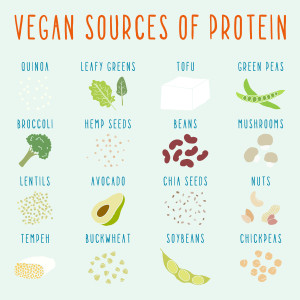
- Protein – Protein can be consumed in a variety of ways, but most Americans get their daily dose of protein through protein rich meats such as beef, chicken and fish. By missing out on the important benefits of protein, Vegans can suffer from a variety of health related symptoms including; muscle or joint pain, constant hunger or craving, trouble sleeping, low energy, and potentially high stress.
- Vitamin B12 – this particular vitamin is mainly found in eating meat, dairy, fish and chicken. And while you can find “fortified” foods that provide a level of B12 the risk of not having the right balance of this vitamin can cause several health issues including; astrophic gasfritis, pernicious anemia, chron’s disease, celiac and immune disorders.
- Vitamin D – this vitamin is not limited to just Vegans, in fact, young school children were lacking so much Vitamin D in the early days that milk became a staple in their day to day lunch diets to compensate for the deficiency. So what are the risks of not getting enough vitamin D? Symptoms such as; cardiovascular disease, cognitive impairments, asthma and even cancer have been reported with Vitamin D deficiencies.
- Calcium – Calcium does a body good, and while it is said that vegetarians absorb and retain more calcium then their counterpart meat eaters, it is still possible to not get enough calcium in your diet if you are a plant lover. Low calcium can cause; weak bones, increased blood pressure and weight gain.
- Zinc – Zinc is known for its ability to boost growth and development, finding the right balance of food and supplements when choosing this lifestyle is mandatory if you are to maintain a healthy body. Zinc deficiencies can include; increased acne, night blindness, diarrhea and psychological disorders.
Ways to Complete Your Diet
Now that we know about some of the risks related to a Vegan diet, it is only appropriate to offer some alternatives on how you can prepare your new lifestyle and ensure that you are getting the proper levels of these dietary components.
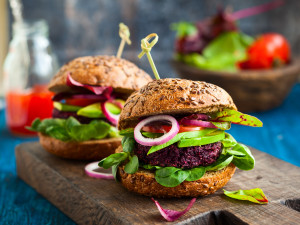
Veggie beet and quinoa burger with avocado
- Iron Supplements– One of the favorite foods on the market to boost your overall iron intake is dried beans and dark leafy greens. With the combination of Vitamin C, which helps the iron absorption process, many Vegans can supplement their iron intake with relative ease.
- Protein Supplements – With animal meat out of the question, the next best recommended sources of protein include soy, lentils, kidney beans, veggie burgers and more. There are countless ways to get your protein levels on track when choosing a vegan diet that does not include meat products, so take some time to research your favorite foods and see how much protein is included in each meal and portion to determine your dietary need.
- Vitamin B12 Supplements – While this particular vitamin does not have a natural counterpart, one can supplement their B12 intake by consuming fortified foods that include this key ingredient. If you are not a fan of fortified foods, then the only alternative on the market at this point is to commit to a vitamin B12 supplement.
- Vitamin D Supplements– Vitamin D is probably the easiest vitamin to supplement when choosing a vegan lifestyle and if you are getting enough outdoors activity to soak up the sun’s rays, then you should be in good shape. However, if you are not looking to work on your tan, then a great vitamin D alternative is Mitake mushrooms, Portabella mushrooms, soy milk and almond milk.
- Calcium Supplements – Similar to Vitamin D, calcium can be absorb by eating a consistent diet of foods including; kale, collard greens, turnip greens, almond butter, soy beans, soy milk, artichokes, dates and many more. The list for calcium rich foods is quite extensive, so as a Vegan, you should have no problem finding a few foods that you enjoy while benefiting from their natural supply of calcium.
- Zinc Supplements – Zinc is not found in a lot food choices and unlike its popular cousin, calcium, requires a bit more focus when planning your diet. To get the proper amount of zinc, one needs to consume some of the following foods; tofu, tempeh, almonds, peanut butter, and oatmeal. While this is not the full list, it does give you an idea of the types of foods that contain your zinc requirements.
In closing I would like to add that I have lived a Vegan / Raw diet lifestyle for over 12 years. When I began my transition, it was a drastic change to my way of life.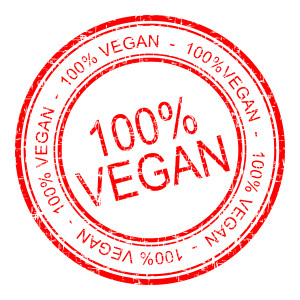 Where I went, what I drank, name it, it was affected. Now, with the evolution of technology it is much simpler to gain information and support from others who have chosen this journey. There is an abundance of web sites dedicated to Veganism that offer recipes, restaurant reviews, fashion tips, travel help and more. My personal go-to site is happycow.net, especially when I am traveling. They, and many others focus on vegan and veg-friendly establishments making it much easier to navigate when looking for restaurants that cater to my needs.
Where I went, what I drank, name it, it was affected. Now, with the evolution of technology it is much simpler to gain information and support from others who have chosen this journey. There is an abundance of web sites dedicated to Veganism that offer recipes, restaurant reviews, fashion tips, travel help and more. My personal go-to site is happycow.net, especially when I am traveling. They, and many others focus on vegan and veg-friendly establishments making it much easier to navigate when looking for restaurants that cater to my needs.
So, there is much to take in when you are deciding to go the vegan way of life, but I could not imagine mine any different. When people ask why I became a vegan, I keep it simple and tell them, “for ethical reasons”. I do not force my ways upon others, but if they insist on delving further I always elaborate and speak for the animals that have no voice.
Peace to All.
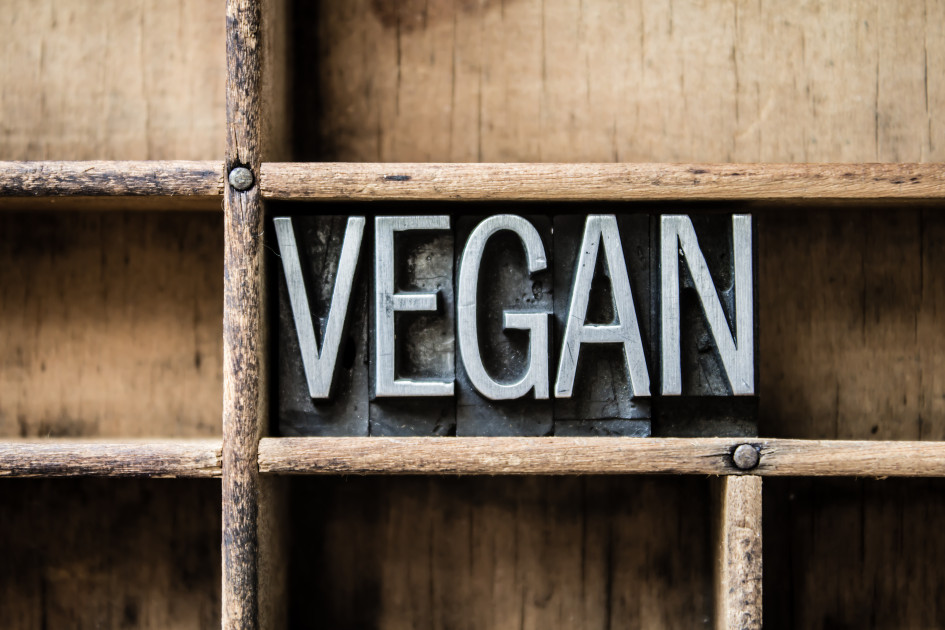

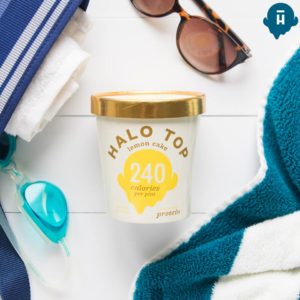
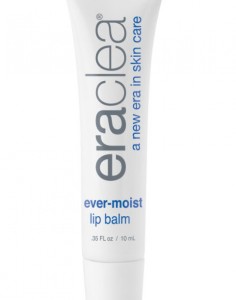
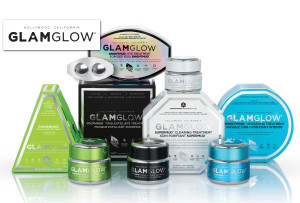



Leave a Reply